Unlike traditional AI, which typically focuses on data analysis and pattern recognition, generative AI actively contributes to the sales process by creating content, drafting communications, and improving customer engagement.
Check out the future of generative AI for sales, the use cases based on the steps of a typical selling process:
Generative AI for sales use cases
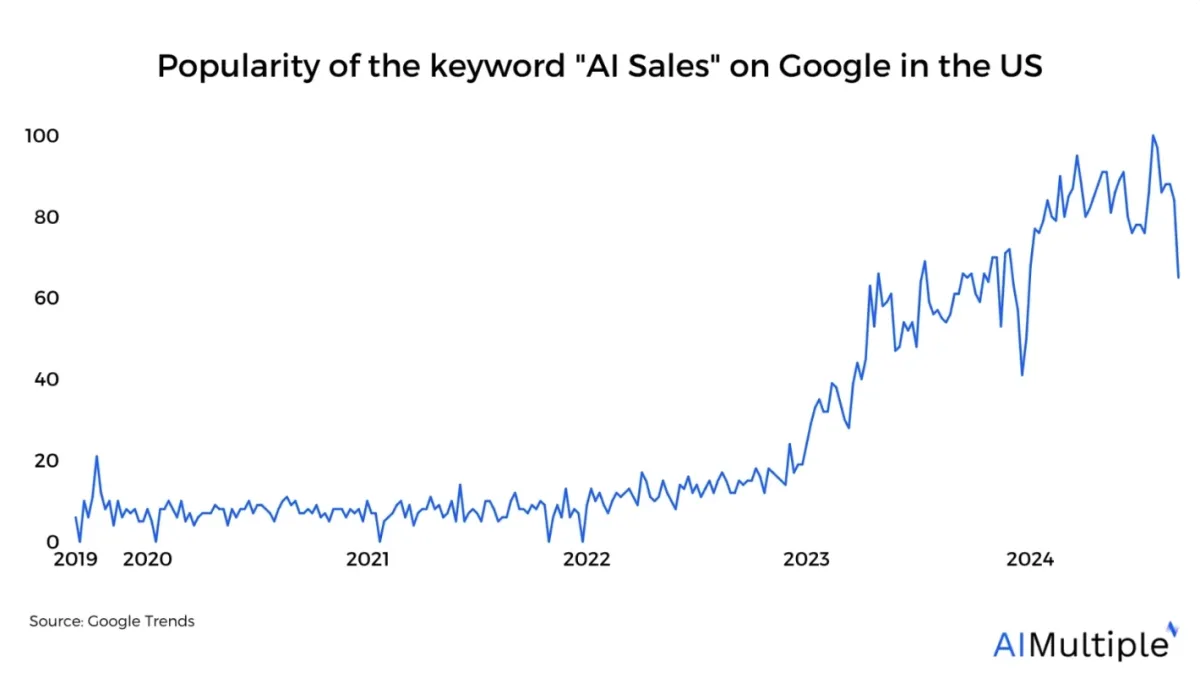
Generative AI tools are becoming an essential part of sales technology and the interest in AI sales has been growing (See Google Trends).
In the context of sales, generative AI leverages vast amounts of structured and unstructured data such as customer interactions, emails, and product information to generate personalized responses, automate repetitive tasks, and offer insights.
Generative AI can streamline and enhance the entire sales cycle, from prospecting to closing, by automating key tasks and personalizing interactions. Below, we outlined top 14 generative AI in sales use cases:
Prospecting
1. Customer segmentation
Traditional AI tools can group customers into distinct segments based on their purchasing habits, online behavior, and engagement with the brand. This segmentation allows sales professionals to craft personalized messaging and develop targeted sales strategies that resonate with each customer group. Generative AI takes this approach to the next level by analyzing unstructured data and segmenting the customers accordingly.
For example, generative AI can analyze a customer’s purchase history and generate personalized product recommendations, improving the chances of closing deals and increasing the average transaction value. This approach enhances customer engagement and also boosts sales effectiveness by allowing sales reps to focus on the most promising leads.
By leveraging both traditional and generative AI, this segmentation process can be automated. As a result, sales teams can achieve better outcomes without manually going through large volumes of customer data.
For more on customer segmentation, check out the types, steps and benefits of customer segmentation.
2. Prospecting & lead scoring
Generative AI can analyze customer data and behavior patterns to identify high-potential prospects. By processing datasets such as browsing history, social media interactions, and prior communications, AI tools can generate lists of prospects most likely to engage with your product or service.
In lead scoring, generative AI tools can assist by automatically qualifying leads based on predefined criteria such as engagement level, buying intent, or demographic data.
By continuously analyzing incoming data from multiple sources, generative AI can prioritize the leads with the highest probability of conversion. This process not only saves time for sales professionals but also increases the chances of closing deals by focusing on the most promising prospects.
Additionally, AI tools can analyze historical sales data to refine lead-scoring models to ensure that sales teams are continuously optimizing their approach to prospecting and lead conversion.
To learn more about other lead generation techniques, you can refer to lead generation technologies.
Preparation
3. Personalized sales emails
Generative AI can craft personalized email and messaging templates by analyzing customers’ previous interactions, preferences, and interests. By using natural language processing (NLP) and natural language generation (NLG) technologies, AI can create engaging and relevant content that resonates with prospects.
Personalized emails are more likely to result in higher open and response rates which would lead to improved conversion rates and sales performance. Sales professionals can benefit from this automation, as it reduces the time spent drafting repetitive emails while maintaining a high level of customization. For more on personalized emails, check out applications of generative AI in email marketing.
By generating personalized content at scale, generative AI enables businesses to strengthen customer relationships, increase customer satisfaction, and drive long-term business growth.
Real-life example
Microsoft’s Viva Sales, which is a sales application equipped with advanced tech solutions, incorporates the large language model GPT into its CRM system to automate some of the sales tasks such as responding to customer emails.
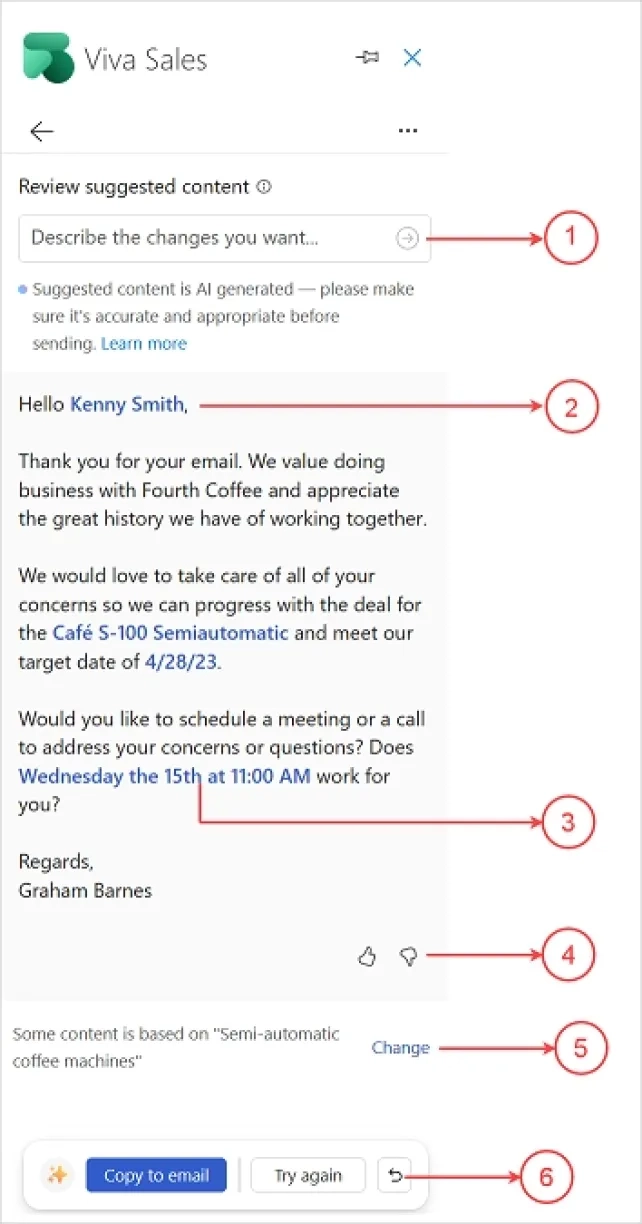
Figure 1: Email generation by AI in Viva Sales.1
Real-life example
LeadIQ’s Scribe is a generative AI tool designed for sales teams to craft personalized prospecting emails. It integrates with various platforms like LinkedIn, Salesforce, and Gmail to help sales reps generate tailored messages based on prospect data and value propositions.
Scribe allows for personalized emails in multiple languages and can be used directly within different sales tools for sales teams to scale their outreach efforts.2
4. Sales material creation
Generative AI for sales helps transforming the way sales professionals create content for their campaigns. AI-generated content can support sales efforts by producing SEO-optimized content such as blog posts, case studies, whitepapers, and social media updates. This ensures that sales teams are continuously engaging potential customers across all stages of the sales funnel with relevant and targeted messaging.
Generative AI tools, such as ChatGPT, enable sales teams to quickly generate sales enablement materials like sales scripts, brochures, and sales playbooks. These materials are critical for driving sales growth by equipping sales reps with the right content to approach customers effectively.
In addition to speeding up content creation, AI-generated content can be personalized for specific customer segments, ensuring that each interaction resonates with the customer’s preferences and needs. This personalization is the key in enhancing customer engagement and boosting sales effectiveness while allowing sales representatives to focus more on building relationships and closing deals.
Furthermore, by automating routine tasks such as content generation, sales teams can allocate more time to refining sales strategies and improving overall sales performance.
AI-generated content also helps maintain consistency across all communication channels, ensuring that every piece of content aligns with the brand’s voice and sales goals. As a result, generative AI tools can improve efficiency and also contribute to long-term business growth by enabling businesses to connect more meaningfully with their audience.
Real-life example
Copy.ai’s sales content creation function allows sales teams by automating workflows such as competitor analysis, persona research, and battlecard creation.
This allows teams to create tailored and persona-aligned content to drive sales conversions while reducing manual efforts.
The platform also supports consistency in messaging, scalability, and productivity by automating repetitive tasks like FAQ generation.3
Approach and Presentation
5. Virtual selling and AI-powered sales assistants
As virtual engagements become more common, virtual assistants powered by AI has also become important tools for sales professionals. These assistants can manage a wide range of tasks, from conducting sales calls to guiding sales reps through customer queries in real time.
AI Sales Development Representatives (AI SDRs), for instance, can automate the early stages of the sales process, such as qualifying leads, handling initial outreach, and scheduling meetings. By managing these routine tasks, AI SDRs free up human reps to focus on more complex interactions, thereby enhancing overall efficiency.
AI tools can also facilitate virtual selling by providing real-time guidance based on their current needs and sentiment. An AI SDR can analyze real-time data from customer interactions to suggest optimal next steps to improve the overall quality and relevance of virtual selling strategies.
Generative AI will enhance virtual sales by creating customized sales pitches and proposals for each prospect. As more sales move online, AI helps simulate face-to-face interactions, making virtual meetings more personalized and engaging. AI-driven Sales Development Representatives (SDRs) play a key role in optimizing virtual touchpoints, ensuring higher engagement and improved conversion rates in these digital interactions.
Real-life example
Jazon is an AI-powered Sales Development Representative (SDR) developed by Lyzr and designed to automate key sales outreach tasks. It helps sales teams by researching prospects, personalizing email sequences, managing follow-ups, and scheduling meetings automatically.
Jazon operates autonomously on private cloud infrastructure to ensure secure and scalable sales operations. It also helps increase productivity by handling repetitive tasks, freeing up human agents to focus on higher-value activities such as closing deals and strategic planning.4
6. Sales presentations and demos
Generative AI tools can assist sales efforts by creating customized sales presentations and demos by analyzing the prospect’s specific needs, preferences, and previous interactions.
These tools can generate product recommendations, demo scripts, and visual aids to ensure that each presentation is relevant and targeted. By tailoring presentations to each prospect, sales reps can offer a more engaging and personalized experience.
Real-life example
Tome’s AI-powered presentation platform supports the sales process by automating research, deck personalization, and presentation creation. It integrates with data sources including Salesforce and Gong to provide tailored insights.
Tome uses AI to create dynamic multimedia presentations and also offers engagement analytics and track audience interaction to improve sales content.5
7. Meeting and demo scheduling
AI-powered assistants can automate meeting scheduling by communicating with prospects and finding optimal times for both parties.
Generative AI can also create personalized invitations for product demos or sales meetings, tailored to the prospect’s interests or pain points. This automation can help minimizing the administrative burden on sales professionals while allowing them to focus on preparation and strategy.
8. Sentiment analysis
Generative AI can analyze customer feedback, reviews, and social media comments to determine sentiment and identify potential issues or opportunities.
Sentiment analysis helps sales reps understand the emotional tone of customer feedback, allowing them to adjust their sales messages. For example, if AI detects negative sentiment, the sales team can offer additional support or adjust product recommendations. On the other hand, positive sentiment can be used to strengthen the relationship and upsell additional products. This approach ensures more personalized and effective sales interactions.
By incorporating sentiment analysis into the sales process, sales teams can improve customer engagement. This proactive approach enhances sales outcomes by helping teams address concerns before they escalate and capitalize on positive feedback to drive further sales.
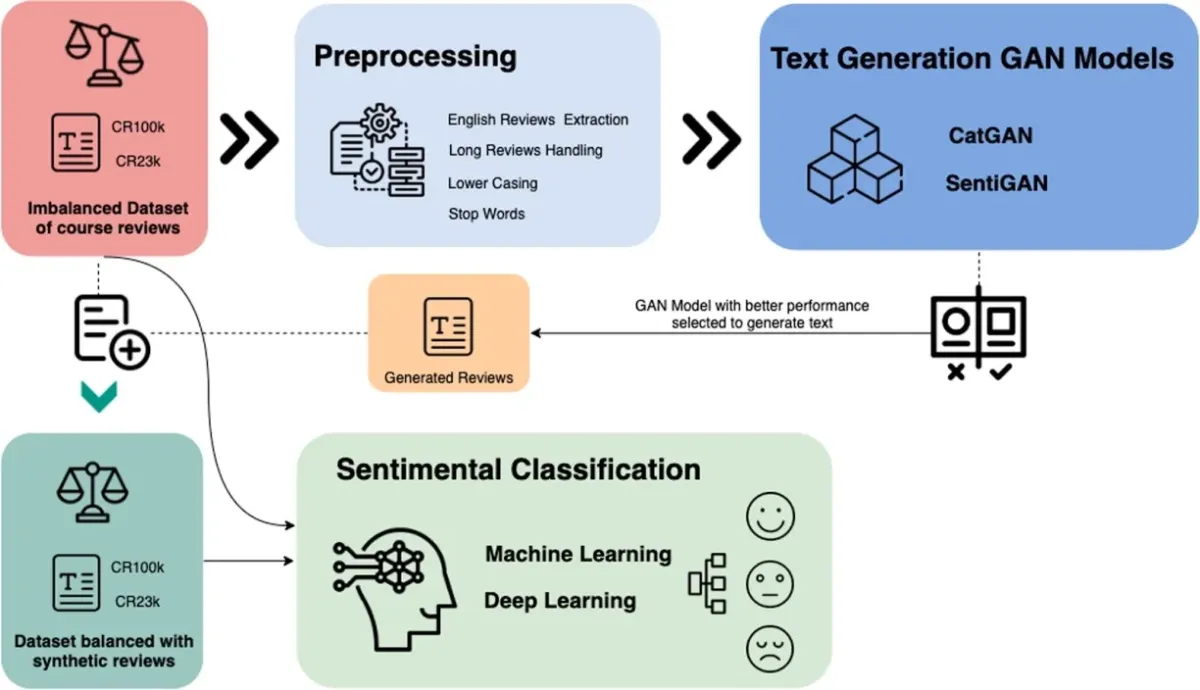
Figure 2: High-level overview of a sentiment classification approach.6
For more on this, check out the use of ChatGPT in sentiment analysis.
Closing
9. Negotiation and closing
During the negotiation and closing stages, generative AI tools can provide sales teams with data-driven insights, such as optimal pricing strategies and potential objections.
These tools can also generate personalized contract and negotiation drafts and proposals based on the client’s preferences for faster turnaround times and fewer errors.
Additionally, AI can analyze historical data to recommend the best closing techniques for different customer types, thereby increasing the likelihood of a successful close.
10. Product recommendations & upsell
Generative AI can enhance traditional product recommendation software with its ability to process and generate insights from unstructured data, such as documents, reviews, and other forms of textual information. Traditional recommendation systems typically rely on structured data, such as past user behavior, ratings, and product attributes.
Generative AI, especially large language models (LLMs), can enhance sales systems by analyzing unstructured data like purchase history, browsing behavior, and preferences. This enables sales teams to tailor offerings to each customer’s needs and interests. By presenting the right products at the right time, generative AI increases the chances of closing deals and boosting the average transaction value.
These recommendations can also enhance customer engagement by making interactions more relevant and personalized. For example, if a customer frequently browses a particular product category, generative AI can automatically suggest complementary products or services during the next sales call.
Beyond immediate product suggestions, generative AI can also help sales teams fine-tune their sales strategy by identifying trends in customer behavior. For instance, generative AI models can predict future purchasing preferences based on historical customer interactions, helping sales teams stay ahead of market trends and maintain a competitive edge.
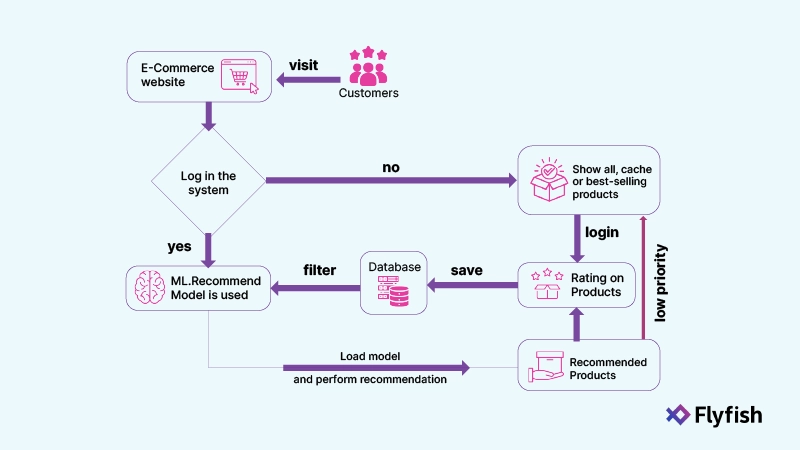
Figure 3: Product recommendation processes by Flyfish.7
11. Sales analytics
Generative AI can significantly enhance sales analytics by providing valuable insights for data-driven decision making and strategy optimization. AI tools can detect patterns in sales data, such as identifying which sales tactics work best for specific customer segments or recognizing which stages in the sales process may be causing friction.
With these insights, sales teams can adjust their sales efforts to improve outcomes. In addition to this, prescriptive analytics offered by generative AI provides actionable recommendations to enhance sales performance. For example, it might suggest focusing resources on high-value leads or revising a sales pitch based on previous customer sentiment analysis.
Real-time analytics is another benefit of generative AI in sales. Sales professionals can monitor the current state of their pipeline, identify potential issues, and take immediate action to resolve them. By leveraging sentiment analysis, AI can also understand the emotional tone of customer interactions and offer further sales optimization by tailoring follow-ups or addressing concerns that could affect closing deals.
Other generative AI for sales use cases
12. Sales automation
Sales automation not only handles repetitive tasks like drafting emails, creating materials, and generating proposals but also improves accuracy. By minimizing human error in routine tasks, sales teams can ensure consistent messaging and alignment with the overall sales strategy. This automation with GenAI leads to better sales outcomes, enhances efficiency, and accelerates sales growth.
13. CRM system integration
Incorporating generative AI into CRM systems allows sales managers to better utilize customer data to optimize their sales strategies.
CRM systems hold large volumes of unstructured data, like emails and support tickets, which traditional analytics tools may struggle to analyze. Generative AI, using natural language processing (NLP) and machine learning, can uncover trends, customer sentiment, and actionable insights. For example, analyzing this data can identify common customer pain points, allowing businesses to address them proactively and improve customer satisfaction (Figure 4).
CRM system integration can allow sales professionals to group customers into meaningful segments based on their behaviors, preferences, and needs to provide valuable insights that can shape tailored sales messages and personalized sales outreach.
By integrating AI models with existing sales platforms, sales teams can also automate repetitive tasks. Additionally, the real-time analysis of customer behavior and market trends helps sales teams make data-driven decisions that can enhance sales performance and drive business growth.
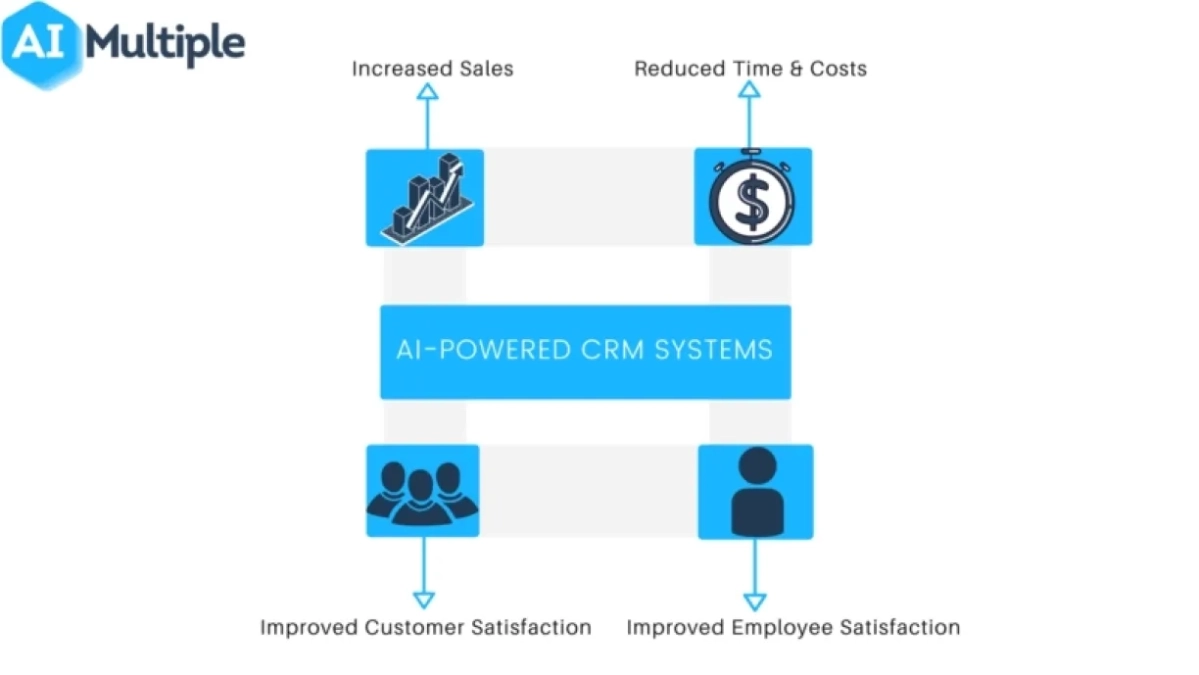
Figure 4: AI powered CRM systems.
Real-life example
AI-powered CRM systems, such as Salesforce’s Einstein GPT, supports sales effectiveness by providing real-time guidance and automating tasks like drafting follow-up emails, generating personalized sales pitches, and even recommending next best actions during sales calls.8
14. Sales training
Generative AI can create customized training materials, simulations, and role-play scenarios that address the unique challenges and requirements of each sales team in sales processes. By offering tailored learning experiences, AI-driven sales training can help sales representatives refine their skills and build product knowledge which can lead to better performance and higher success rates in a sales process.
For example, if a sales representative struggles with handling objections during sales calls, generative AI can generate role-play scenarios that focus on overcoming customer objections.
Furthermore, by continuously analyzing real-time data from customer interactions, AI can update training programs to reflect current market conditions and customer behaviors to ensure that the training remains relevant.
How AI is shaping the future of sales?
Generative AI for sales is already transforming how sales teams operate, but its future potential promises profound changes in the sales world. As AI continues to evolve, it is expected to play a critical role in changing several key aspects of the sales process, from automating more complex tasks to offering deeper insights into customer behavior and preferences.
Automation of complex sales tasks
Current AI solutions automate tasks like drafting emails and generating reports, but in the future, AI will handle more complex, strategic sales activities. For example, AI could autonomously manage parts of the sales process, from lead generation to personalized follow-ups, freeing up sales teams to focus on high-value tasks like relationship-building and strategy development.
It is also expected that AI could take a larger role in strategy optimization. By continuously analyzing business data and providing valuable insights, AI can allow sales managers to refine their sales strategies in real time. This will help sales representatives refine their approach, optimize resource allocation, and ensure that every aspect of the sales pipeline is optimized for maximum efficiency and impact.
Advanced personalization and customer engagement
AI’s ability to provide hyper-personalized experiences will be a key differentiator for future sales teams. As generative AI tools advance, they will have access to more customer data, such as online behavior, purchase history, and real-time feedback. This data will enable AI to create highly personalized sales messages, product recommendations, and campaigns that resonate with each individual prospect, enhancing customer engagement and conversion.
As AI becomes more adept at analyzing and responding to customer sentiment, it will allow sales professionals to engage with customers in more meaningful ways.
AI avatar videos for sales are becoming more prominent as their quality and realism improve. These videos use AI to create human-like digital avatars that deliver sales pitches or product information. Customizable to represent a brand, these avatars use natural language generation to communicate with customers in a personalized, engaging way, offering a modern and interactive sales approach.
By automating the video creation process, AI avatars can scale outreach efforts, ensuring consistent messaging while maintaining a human-like presence in sales and marketing videos. Check out AI avatar and sales video software to learn more.
Below video shows an example of AI avatar video by Synthesia.
External Links
- 1. Draft an email message in Copilot for Sales app | Microsoft Learn.
- 2. AI-Email Generator for B2B Sales Teams.
- 3. Sales Content Creation - Use Cases - GTM AI Platform.
- 4. Jazon - World's 1st truly agentic AI SDR.
- 5. Tome — Business presentations that persuade.
- 6. ScienceDirect.
- 7. Smarter Ecommerce Product Recommendations - Powered By GenAI.
- 8. Salesforce AI — Powerful AI Solutions | Salesforce EMEA.


Comments
Your email address will not be published. All fields are required.